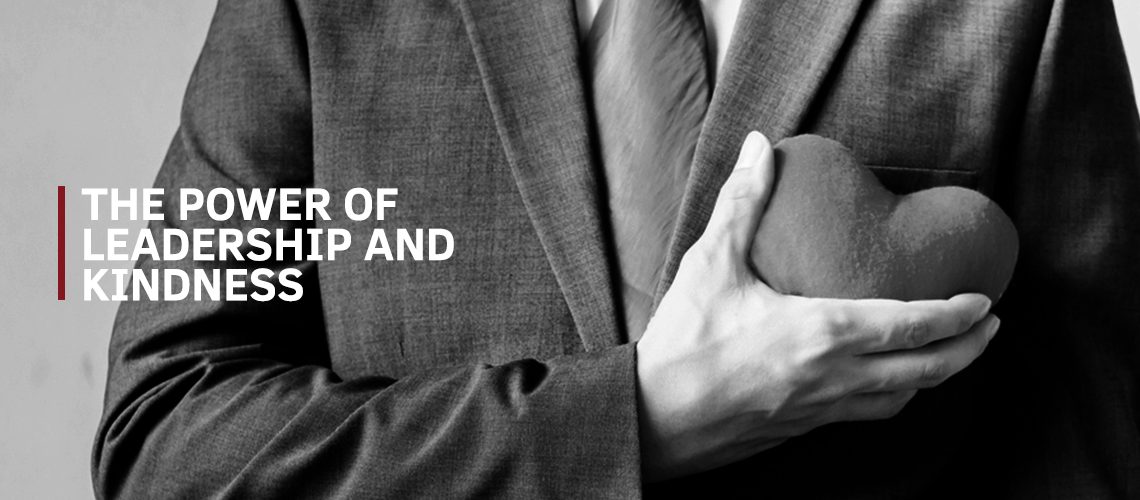By: Dr. Salam Slim Saad
“The challenge of leadership is to be strong, but not rude; be kind, but not weak; be bold, but not a bully; be thoughtful, but not lazy; be humble, but not timid; be proud, but not arrogant; have humor, but without folly.”
– Jim Rohn
At Wide Impact we add element of fun to increase the effectiveness of our training courses, among them are the icebreakers and practical activities, they are always a great way to enhance trainee engagement, this said, let me share with you an experience about one of the activities that I do during leadership courses, I usually divide my trainees into small groups and ask them to list on a flip chart paper all the qualities that make up a great leader, taking into consideration that writing is not allowed, and that they only have to illustration or draw the qualities. At the end of the activity I usually pass by each group and with a red marker draw a heart in the center of their page. Some trainees wonder about having a heart among the qualities of Leadership, and I explain to all that the heart symbolize two important qualities in a leader, which are empathy and kindness.
Since the inception of business framework, kindness and empathy in leadership were associated weakness, kind leaders were believed to be weak, uncappable of handling tough situations. domineering and autocratic style of leadership has been preferred over kind and compassionate leadership, the image of a leader shouting or bullying was the sign of a powerful capable.
Great leaders confirm that being consistently kind is not a sign of weakness or surrendering power, to them offering reassurance and encouragement is a way to express authentic interest in employees’ well-being, mainly in difficult times.
New Zealand Prime Minister Jacinda Ardern, mentioned that one of the blames and criticisms she’s faced over the years is that “I’m not aggressive enough or assertive enough, or maybe somehow, because I’m empathetic, it means I’m weak. I totally rebel against that. I refuse to believe that you cannot be both compassionate and strong.”
Leaders are faced with lots of challenges that needs their devoted time exclusive skills, never the less legendary leaders and executives known for their humble and employee-centric style.
According to a study by Times magazine, kindness could be the least estimated valued leadership skill, the study shows that act of kindness benefits both the receiver and giver, companies and employees, and that companies that value kindness have better productivity, lower employee turnover and lower recruitment costs and that remarkably, “Kind people are healthier and happier”.
in a recent Gallup survey, just 45 percent of employees strongly feel that their employer cares about their well-being, a result that needs to be changed. Applying kindness in simple acts such as; empathetic listening, a little encouragement and reassurance, a mindful effort to endorse people’s confusion or fear all go a long way. kindness can transform workplace “even remote workplace” .
Kindness is contagious, and everybody could be trained on being kind, this is what we do during our training courses in Wide Impact and what science have proven, Ritchie Davidson of the University of Wisconsin has compared practicing kindness and compassion to weight training and says that “People can actually build up their compassion ‘muscle’ and respond to others’ suffering with care and a desire to help”.
In fact Kindness not only helps build strong and successful relationships, it also has a healing effect, again science jumps in to proof what we witness in our daily interactions, this time in one of Mayo clinic’s study set a goal to be kinder to others. Where it the study shows that Being kind is good for physical and mental health., and this transforms in improved performances and Morales.
Frankly speaking, as a leader, you don’t need that big effort to practice kindness, start by:
Show your empathy, Be ready to read signs of concern or distress (it could be in poor performance or social distancing), comfort your team and motivate them, seek ways to help
“Truly Listening” encourage your team to communicate with you, coactively listen to their ideas and concerns.
Spice your words with kindness and encouragement words, Say it often and sincerity, this could be as simple as : “Thank you.” ”I know you’re doing the best you can.” “I believe in you—you can do it!” Of course you will—you’ve made it this far!”
Let your team know that you stand by them, you are there for them, and that you are ready to share with them any concerns.
I truly believe that Along with emotional intelligence and empathy, kindness is the most important soft skills for great leadership, and as David Thoreau says, “kindness is an investment that never fails”.
Communication, Teamwork, Decision-Making, Problem-Solving, Empowerment are among the important leadership soft skills that help an employee to become an efficient executive and a better team leader. I truly believe that along to these skills, emotional intelligence and empathy added to them kindness are the most important soft skills for great leaders, and as the American philosopher David Thoreau says, “kindness is an investment that never fails”.
About the author
Dr. Salam Slim is the training manager of wide impact
An executive Consultant, speaker & trainer, she has been speaking, writing and facilitating workshops about professionalism, leadership, soft skills and corporate civility for over two decades.


